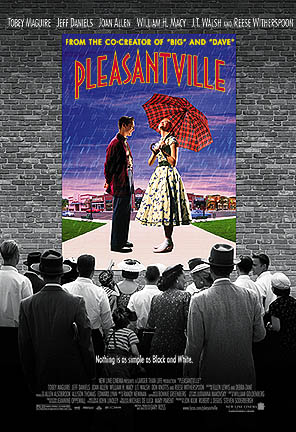Now that Apple is offering Podcast integration into iTunes, an absurd argument has popped up concerning warnings vs. parental responsibility.
In typical polarizing fashion the discussion has been divided into a neat dichotomy: those who demand that Apple should censor/rate content for the sake of the children and those who think that you are just a lazy parent out-of-touch with today.
Even the people who disagree drop into the illogical and irrational. Take this high rated response from someone who claims to not “entirely agree with either of these guys” (but clearly is showing his biases):
It seems that they would, even by their own standards. We (meaning society in general, not just parents) expect such a system for movies, TV, video games, music, etc. And btw, we’re missing the point with some of this by focusing solely on children. I know plenty of adults who don’t care to see or hear “adult content” and would appreciate a warning in advance so a label system would serve people other than just parents.
My wife dislikes “adult content” in music and ironically, Apple does such a thing for iTunes Music Store (those little ‘explicit’ tags on some songs and albums.) It would seem even by Apple’s own standards they have come up a little short with their implementation of podcasts.
It would be very easy for Apple to classify podcasts in this manner (or ask providers to self-rate) and then give parents control over what podcasts their children could access via the parent controls panel.
I don’t buy blanket statements like this. How can he conclude that such a thing is easy just because the music industry already mandates labeling of explicit content on a economic venture such as selling music?
Television and radio content are regulated because they broadcast over public airwaves. Those laws don’t apply to podcasts so the content providers are not liable in the same manner here.
 All of us remember that marking video games and music as “mature” and “explicit” is a recent thing. Some of us who know history know that the rating system in movies was a relatively recent reaction to the death of the Hollywood code. The entire thing is very economical: on one hand people desire stuff more interesting than “Leave it to Beaver” and on the other hand parents need a signal of the content before they put money sight unseen. The desire for revenue drives the demand for a ratings system…
All of us remember that marking video games and music as “mature” and “explicit” is a recent thing. Some of us who know history know that the rating system in movies was a relatively recent reaction to the death of the Hollywood code. The entire thing is very economical: on one hand people desire stuff more interesting than “Leave it to Beaver” and on the other hand parents need a signal of the content before they put money sight unseen. The desire for revenue drives the demand for a ratings system…
Podcasts haven’t been proven to be a revenue generator. While the most popular ones come from commercial radio and thus are regulated by the FCC, the vast majority of them are done by individuals. So what this guy is really mandating is for Apple to hire a bunch of people to listen to all these crazy podcasts published to their site and monitor them for explicit content and tag it as such and absorb the liability for improper tagging.
I think we can all agree that tagging information for parents would be nice, but with no infrastructure, standards, or laws that are applicable for the majority of podcasts, how would this be easy?1 I guess we should be demanding that Google monitor every page that they link and put an “explicit” tag next to them!
When Podcasts are profitable, the content providers, just like the movie, music and videogame industries, will find it in their best interest to make some system for marking things as explicit. Right now, advocating such an action and then claiming it would be “easy” when it obviously isn’t is putting the cart before the horse.
